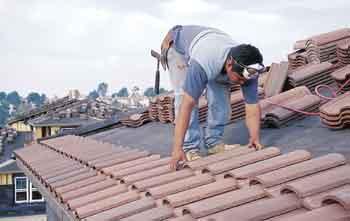9 7 tiles per m.
Marley roof tiles per square metre.
Roof area m x tiles per m.
Once you know the square meterage of your roof the next stage is to calculate how many tiles you need.
9 7 tiles per m.
9 7 tiles per m.
Sandtoft concrete standard pattern.
Tiles per square metre.
So to find out how many tiles you need for this range you ll do the sum.
9 9 tiles m 75mm headlap tiles per pallet.
This would mean your roof deck was 24 square metres.
192 add fittings vents dry fix systems.
3 97 x 12 6 x 2 100 04m total roof area when you know this you can work out all the materials needed to complete your project.
60 tiles per m.
Smooth 17 5 100mm headlap granular 25 100mm headlap covering capacity.
Marley eternit clay hawkins tiles for example are 265 x 165mm and the manufacturer specifies 60 tiles per m.
You can do the same thing with feet if you prefer to use imperial measurements.
This square metre tile calculator will provide an estimate of how many tiles you will need per m 2 based on the size of your tile dimensions.
Double lap fibre cement slates where the roof slope exceeds 6 metres in length severe very severe exposure and 9 metres in length sheltered moderate exposure.
Interlocking tiles and slates where the roof slope exceeds 6 metres in length and or the site is rated to be in a severe exposure category.
420 x 330mm minimum pitch.
Nominal weight of roof tile fittings.
9 7 tiles per m.
57 76m x 60 3 465 6.
A new chapter for the uk s leading roof systems manufacturer the vast experience gained in manufacturing pitched roof tiles and roofing products over the course of the last 100 years and a passionate commitment to driving industry standards have contributed to successfully establishing marley as the uk s market leader in holistic roofing systems.
Please select from the drop down menu size.
60 tiles per m.
Simply multiply the length of your roof deck by the width and you ve got the square meterage.
To calculate the number of tiles required the calculator multiplies the millimetre mm width and length of one tile to ascertain its area coverage then divides 1m 2 by the result providing the amount of tiles you will need.

